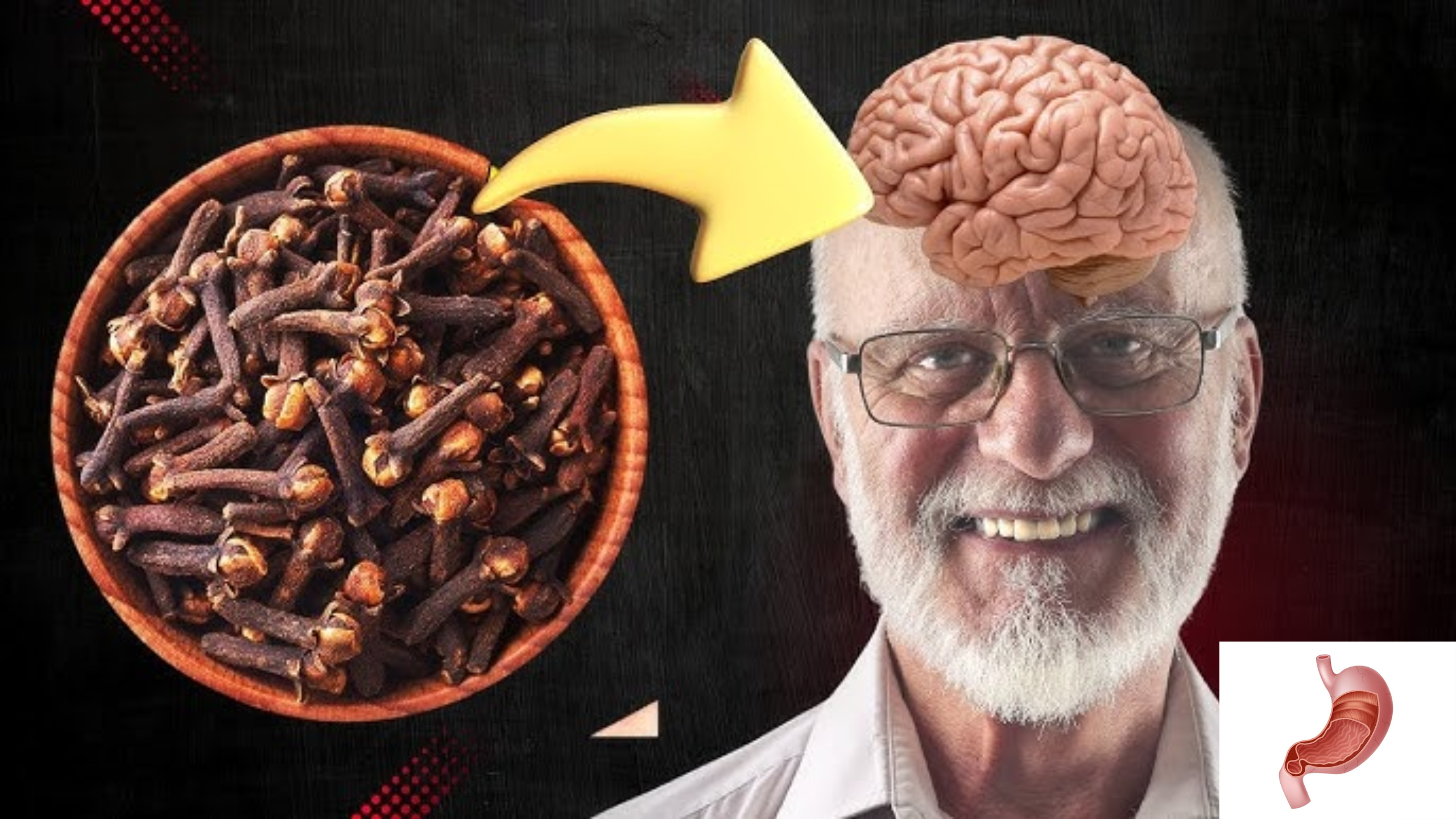As we age, our bodies often send us signals that something might need our attention—slower digestion, joint pains, ongoing fatigue. Sometimes, the solution can be surprisingly simple and hidden right in your kitchen cupboard. Have you ever considered that a common spice might hold powerful health benefits? That’s right: the humble clove, an age-old remedy, is making a comeback as a natural way to boost health and well-being as you get older.
In this article, we’ll explore how just two cloves of garlic daily can positively impact your life after 50. From digestion and joint health to oral hygiene and cardiovascular support, let’s uncover what makes this tiny spice so extraordinary.
Why are cloves so potent?
Cloves are dried flower buds from a tree native to Indonesia. They might look small, but their aroma and medicinal properties pack a punch. The key active compound in cloves is eugenol, a natural substance recognized for its anti-inflammatory, analgesic, and antimicrobial qualities—making it a true versatile healer.
What makes cloves particularly special is their ability to act as a natural multi-tasker. Think of them as a tiny, all-in-one health aid that fits in your hand but offers a broad spectrum of benefits.
Boosting your immune defenses naturally
As the years go by, our immune system tends to weaken, leaving us more vulnerable to infections and illnesses. Cloves come to the rescue, acting as a natural shield. Their antimicrobial properties help fight off viruses, bacteria, and other pathogens.
Regularly chewing a clove each day can help your body fend off common colds, the flu, and other infections. It’s like adding an invisible guardian to your immune defenses, standing guard against daily threats.
Freshening your breath and improving oral health

Ever find yourself dreading bad breath? Chewing a clove can be your natural remedy. The antimicrobial agents in cloves kill bacteria responsible for bad odors, refreshing your breath for hours. Plus, cloves help soothe gum inflammation and reduce mild dental pain.
This simple practice can replace commercial mints and mouthwashes, offering a chemical-free alternative. For older adults, maintaining good oral health is vital, and cloves can support healthier gums and teeth over time.
Easing joint and muscle discomfort
If you suffer from joint stiffness or mild arthritis pain, cloves could be a natural solution. The eugenol in cloves acts as a gentle anti-inflammatory, helping to reduce swelling and discomfort. Imagine it as a natural oil that lubricates and relaxes your joints, contributing to greater flexibility and less pain.
Incorporating cloves into your daily routine may support smoother, less painful movements, allowing you to stay active and independent longer.
Supporting a healthy, gentle digestion
Digestive issues like bloating, acid reflux, and slow digestion are common complaints as we age. Cloves stimulate the production of gastric juices, aiding the digestive process. They can help reduce gas buildup, ease indigestion, and promote a more comfortable stomach.
This isn’t just about comfort; it’s about maintaining a vital part of your health. Proper digestion ensures your body absorbs nutrients effectively and minimizes discomfort.
Protecting your heart and blood vessels
High blood pressure, cholesterol, and circulatory problems are health concerns many face after 50. The antioxidants in cloves help improve blood flow, regulate blood pressure, and combat oxidative stress—factors linked to cardiovascular diseases.
By incorporating cloves into your diet, you might be making a subtle but meaningful contribution to your heart health, helping you maintain a strong and healthy cardiovascular system.
Sharpening memory and mental clarity
Antioxidants in cloves don’t just benefit your body—they also safeguard your brain. They help protect brain cells from oxidative stress, which is associated with aging and cognitive decline.
Regular consumption can support memory, concentration, and overall mental clarity, keeping your mind sharp well into later years.
A natural detox: liver, kidneys, and respiratory health
Cloves can also assist in clearing toxins from your body. They support liver detoxification, improve kidney function, and act as a natural expectorant—helping to loosen phlegm and clear congestion from respiratory pathways.
If you want a natural way to breathe easier and keep your detox organs functioning well, cloves are a simple, effective addition.
Easy ways to incorporate cloves into your routine
Adding cloves to your daily life is straightforward and cost-effective. Here are two simple methods:
- Morning ritual: Chew two cloves on an empty stomach each morning. It’s quick, easy, and sets a positive tone for the day.
- Evening infusion: Lightly crush the cloves and steep them in warm water or mix with a teaspoon of honey before bed. This not only enhances flavor but amplifies their calming and digestive benefits.
In just a few seconds, you’re taking a step towards a healthier lifestyle, especially after 50.
Why this small habit matters
Adopting this simple routine doesn’t require elaborate preparation or expensive supplements. It’s a natural, accessible, and gentle way to support your health—one that anyone can integrate into daily life with ease.
Imagine the potential if more people embraced this ancient spice as part of their wellness toolkit. The benefits ripple across your general health, contributing to better digestion, fewer aches, stronger immunity, and mental sharpness.
The idea in a nutshell
Could the secret to thriving after 50 lie in your spice rack? Often, the simplest solutions are the most effective. Two cloves a day might be all it takes to keep your body functioning optimally, ward off common ailments, and enjoy more vibrant health.
So why not give it a try? Observe how your body responds, and feel free to explore other natural habits that enhance your well-being. Sometimes, the smallest change can make the biggest difference.

